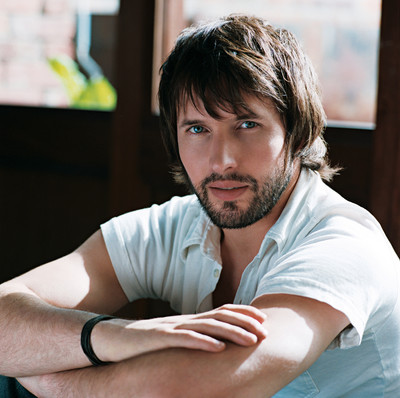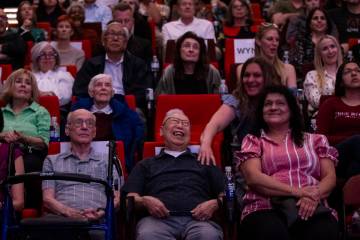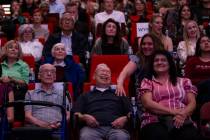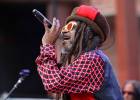Heart on His Sleeve
James Blunt's a prescient dude, a lover and a fighter for real.
He's fought in wars, stolen your mom's heart with his omnipresent hit "You're Beautiful" and cut his teeth as an amateur pop sociologist.
The title of Blunt's senior dissertation in college, before finding fame as a musician: "The Commodification of Image -- Production of a Pop Idol."
How prophetic.
The paper was inspired by noted critic Simon Frith, whose seminal book, "Performing Rites," examined how we distinguish between good and bad music and what factors come into play in determining what we consider to be art and what we dismiss as populist pabulum.
It's as good a primer on the music industry as there is.
"It was really an insight into the industry and how it focuses so much on image, on perception, on fashion and what is cool and not cool -- things that really don't have anything to do with music," Blunt says. "It's kind of an amazing place to be when you go in there as a musician, particularly with my music, which is quite honest, it's heart-on-the-sleeve kind of stuff. This business is not really interested in that so much as whether it's this year's type of music."
Blunt, a former member of the British army who once served in Kosovo, is nothing if not forthcoming, both in conversation and on his records.
He's an open book who bares his feelings like a stripper does her flesh.
He sings of "Rain and Tears" and leaves little to the imagination with songs like "I Really Want You."
Blunt's unadorned sentimentality is what ultimately made him a star.
Sung in a voice that trembles like a wet dog in a meat locker, the aforementioned, title-says-it-all "You're Beautiful" propelled his 2005 debut, "Back To Bedlam," to worldwide sales of more than 10 million.
Gushing forth like a punctured keg, Blunt's starry-eyed ballad made him a household name among the "Oprah" set.
"It just leads to a whole lot of cliches, doesn't it?" Blunt says of having such a ubiquitous hit. "You get quoted a lot, you get talked about a lot, people ask if you get bored of it a lot. At the same time, there's always trying then to look to the negative side of it, and in fact, there's nothing negative about it. It's been a great thing. For me, it was a great advert for an album. It wasn't like people just went and got a song, they went and got an album. Fortunately, people realized it was just one chapter of a 10 chapter book."
Blunt's second disc, last year's "All the Lost Souls," builds upon the spare setting of his debut. It's a confident-sounding, more self-assured record, the opposite of the tentative sophomore album that sometimes follows a hit debut.
"Most people only think of that kind of cliche of how difficult it must be to make that second album," Blunt says, "but you've been in the studio already, so you kind of know what to expect. You have a relationship with your producer already -- at least I did with Tom Rothrock. Second time around, it was running instead of learning how to walk. I have confidence with the writing process because I'd done it before, and I had lots of things to write about because I've traveled for the past 21/2 years. It was all a positive for me."
Recorded with a live band this time around, it's a warm, organic-sounding record that's pointedly reminiscent of classic '70s pop.
"The emphasis was on hearing what the musicians could bring to it, and you can actually hear some of the fun that we were having making the album," Blunt says. "How people write a lot of the times nowadays, they go and get a computer to generate beats, and they try and find that computer-generated beat to inspire them to write a song. It's kind of madness when you're trying to capture a bit of human emotion and human spirit. You might as well attend to yourself."
Hearing Blunt speak, it's clear that the guy seldom puts on airs, even if it makes him seem a bit maudlin at times. But that's OK with him, just so long as all those lost souls eventually get found.
"Most people who've come up to me and said they like my music say it's because it's what it is to be human," Blunt notes. "It's about things that connect us, rather than divide us. It's not about putting someone on a pedestal. I don't want to be put in a position of adulation. I want a connection with people instead."
Contact reporter Jason Bracelin at jbracelin@reviewjournal.com or (702) 383-0476.
who: James Blunt
when: 8 p.m. today
where: The Pearl at the Palms, 4321 W. Flamingo Road
tickets: $58-$78 (942-7777)




























